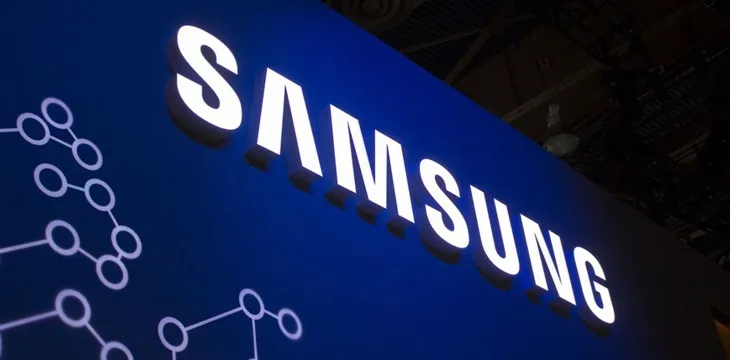|
Getting your Trinity Audio player ready...
|
The tech giant is continuously strengthening its integration of blockchain technology.
Samsung is reportedly working on transitioning to a blockchain-based system to manage their global supply chain.
In an interview with Bloomberg, blockchain chief Song Kwang-woo of Samsung SDS Co. says that the move is expected to cut shipping costs by 20%—a substantial amount considering that the Korean manufacturing giant expects 488,000 tons of air cargo and over a million 20-foot shipping containers for this year. Samsung’s global smartphone and semiconductor manufacturing supply is a multi-billion dollar business.
Blockchain technology has the perfect features to disrupt and streamline supply chains, enabling real-time communication, tracking, and documentation of relevant product information embedded in product tags for every single product in circulation. All of these can be stored and monitored in an incorruptible, time-stamped ledger, automating the currently redundant, time-consuming, paper-based manual processes that shippers still employ. It also allows easy verification of legitimate products, and can effectively purge out counterfeit goods.
With a vast line-up of benefits, several start-ups and even industry big names like IBM have joined the race pursuing the same mission—focusing on a more efficient, digital coordination system for supply chains using the technology.
“It will have an enormous impact on the supply chains of manufacturing industries. Blockchain is a core platform to fuel our digital transformation,” Song said.
This isn’t the company’s first venture into blockchain technology. Samsung is the biggest smartphone and chip manufacturer in the world, and will be one of the first and biggest companies to aggressively integrate blockchain technology into their product line. Samsung’s flagship blockchain project, Nexledger, promises to be a B2B scale infrastructure offering digital identity, payments, and authentication.
Last year, they also won a contract to take charge of the Seoul government’s public sector for blockchain platform, a project where they will cover welfare, public safety, and transportation by 2022. In January this year, the company also started manufacturing ASIC miners and peripherals, a move cryptocurrency analyst Joseph Young says would “provide Bitmain its first real competitor.”
Whether the supply of these new mining products will also be monitored by their blockchain-based supply chain management system is not specified, although it would make so much sense.

 07-12-2025
07-12-2025 





